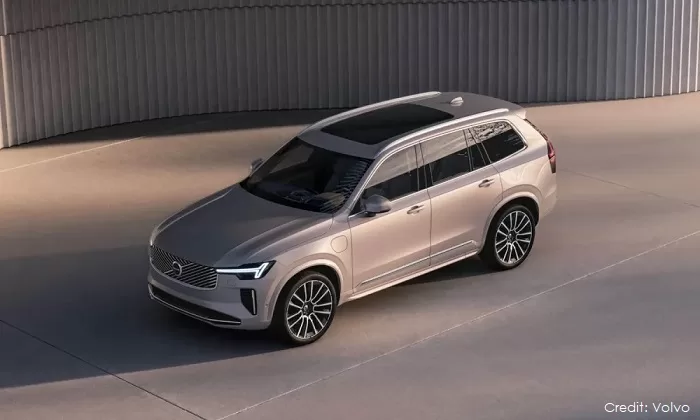Auto
Volvo’s 2030 Vision: A Blend of Electric and Hybrid Vehicles

- Volvo has revised its 2030 goal to include hybrid vehicles alongside fully electric cars due to changing market conditions.
- The company cites a slowdown in EV demand, trade tariffs on Chinese-made EVs, and infrastructure challenges as key factors in this decision.
- Volvo joins other automakers like Ford and General Motors in scaling back their EV ambitions while still committing to an electric future.
Volvo, the Swedish automobile company famed for its environmental dedication, has announced a dramatic shift in its long-term strategy. The corporation, which had planned to create only fully electric vehicles by 2030, will now include hybrid vehicles in its inventory by that time. This decision reflects the rapidly changing market conditions and the problems confronting the whole automobile sector.
Market Challenges Require a Rethink
Volvo’s decision to alter its electric-only aim comes as the worldwide market for electric vehicles (EVs) slows. Initially set just three years ago, the aim of manufacturing solely totally electric vehicles by 2030 seems realistic. However, with shifting demand and increased trade levies on EVs built in China, Volvo, like other big manufacturers, has had to reconsider its strategy.
Hybrid Vehicles Will Play a Role
By 2030, Volvo intends to produce at least 90% of its vehicles as electric or plug-in hybrids. In addition, the corporation may continue to build a modest number of mild hybrids, which are conventional vehicles with limited electric assistance. Volvo’s change aligns it with other automakers such as General Motors and Ford, who have similarly scaled back their EV ambitions in reaction to market realities.
A Complicated Transition to Electrification
Despite the adjustment, Volvo remains committed to an electric future, recognizing that the path ahead may be more challenging than previously believed. “We are resolute in our belief that our future is electric,” stated Volvo CEO Jim Rowan. “However, it is clear that the transition to electrification will not be linear, and customers and markets are moving at different speeds.”
Challenges of the EV Market
Several factors affected Volvo’s shift in strategy. The delayed spread of charging infrastructure, along with the removal of consumer incentives, has produced a more challenging business environment for EVs. In Europe, EV demand has fallen significantly, particularly since subsidies in key markets like Germany were phased off. The European Automobile Manufacturers Association reported an 11% fall in EV registrations across the EU in July.
Tariffs’ Impact on Chinese-Made EVs
Volvo’s troubles are exacerbated by its majority ownership by Chinese automaker Geely. Because the corporation has manufacturing in China, rising taxes on Chinese-made EVs in Europe and North America would hurt it. Canada recently put a 100% tariff on imports of Chinese-made electric vehicles, following similar steps by the United States and the European Union. These levies are part of a larger push by Western countries, who accuse China of illegally subsidizing its EV industry. China has strenuously denied these allegations, calling the levies “discriminatory.”
Industry-Wide Adjustments
Volvo is not alone in rethinking its EV strategy. Ford recently declared that it would reduce its EV plans, canceling the development of large all-electric SUVs and delaying the introduction of its next electric pickup truck. General Motors has likewise cut its EV production targets in the last year.
Looking Ahead
Volvo’s revamped plan highlights the difficulty of transitioning to an electric future. While the corporation remains committed to electrification, it recognizes that flexibility will be critical as it navigates the obstacles ahead. The automobile industry’s journey toward sustainability is still in progress, and Volvo’s flexible strategy may serve as a model for other manufacturers to follow.























































